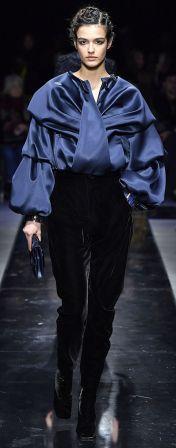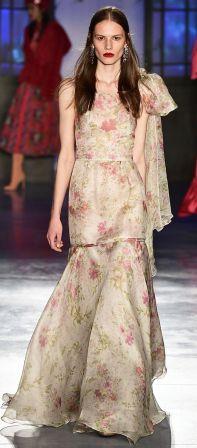

When research was released last week showing the level of body image distress among young people, its focal point was social media: what was driving 75% of 12-year-olds to “dislike their bodies” and feel “embarrassed by the way they look”? Why was this rising to an astounding 80% of young people by the time they reached 18? Is Instagram wrecking mental health, or is it TikTok?
 Others argued that social media may be the gravity, but something more immediate had caused the crash. The rise in acute psychological distress – far higher in girls than boys – is observed in a study comparing 2021 with 2007: suicidal ideation among one in 10 girls aged 16, self-harm at almost a quarter. Lockdowns and long Covid were hypothetical factors.
Others argued that social media may be the gravity, but something more immediate had caused the crash. The rise in acute psychological distress – far higher in girls than boys – is observed in a study comparing 2021 with 2007: suicidal ideation among one in 10 girls aged 16, self-harm at almost a quarter. Lockdowns and long Covid were hypothetical factors.
We could say with relative confidence that social media and more general turmoil are acting as accelerants, and also that going from childhood to adulthood has never been easy. But we won’t get to the root of the particular body disgust that girls experience until we admit the conditions they’re swimming in.
The over-riding message to young girls from the mainstream – advertising, agony aunts, teachers, parents, the acceptable face of their peers as represented in culture – is a set of platitudes about body positivity: come as you are, love your body, love yourself, don’t fixate “unhealthily” but don’t eat unhealthily either.
It has actually been the theme for as long as I can remember, though it has shape-shifted over time through various hero foods (fibre in the 80s, protein in the 90s, seeds and husks in the 00s etc), acceptable body shapes (zaftig to curvaceous to strong) and buzzwords (“body positivity” to the current term, “body neutrality’”: see your body as a vehicle for your own wellbeing and joy). There’s nothing intrinsically wrong with any of these ideas, except that they’re a lie.
 So you have this tripod effect: the explicit message to girls is “don’t try to be thin, try to be healthy”; the implicit message is “thin is actually better than beautiful, thin is beauty, femininity and discipline combined”; and finally the high-pitched screaming of our collective lizard brain: “Fat is disgusting and undignified.” Telling girls not to worry about their body shape is like telling them not to worry about being liked.
So you have this tripod effect: the explicit message to girls is “don’t try to be thin, try to be healthy”; the implicit message is “thin is actually better than beautiful, thin is beauty, femininity and discipline combined”; and finally the high-pitched screaming of our collective lizard brain: “Fat is disgusting and undignified.” Telling girls not to worry about their body shape is like telling them not to worry about being liked.
For the reason it focuses on girls more than boys (though boys are by no means immune), you probably have to go back to 80s feminist analysis: the world likes us better when we take up less space. It’s a mistake, made constantly, to characterise girls and young women as “vulnerable”.
Young women don’t struggle with their body image and mental health because they’re fragile or weak. It’s an absolutely rational response to a world that hysterically, ceaselessly bombards them with contradictory demands. I don’t have a better answer to all this than “anarcho-feminism”. ![]()
Courtesy: Guardian News & Media Ltd. To read full text of this edited version, click here.
___________
Also Read:
Industrialization versus Environmental Degradation
Centre’s Opaque Auction Rules For Pulses Rip Off Govt Coffers, Help Millers Strike Rich
Need to amend laws like UAPA to provide for punishment for those who slap false cases
Global Arms Trade: Who are the real winners?
Why not 40 pc tickets for women in Punjab and elsewhere?
Punjab – How a deadly cocktail of Agri-Water-Energy nexus going to destroy it?
North Pole and the ideological conflict of RSS & Hindutva
Politics of Symbolism: Dalit Chief Ministers in India

Disclaimer : PunjabTodayTV.com and other platforms of the Punjab Today group strive to include views and opinions from across the entire spectrum, but by no means do we agree with everything we publish. Our efforts and editorial choices consistently underscore our authors’ right to the freedom of speech. However, it should be clear to all readers that individual authors are responsible for the information, ideas or opinions in their articles, and very often, these do not reflect the views of PunjabTodayTV.com or other platforms of the group. Punjab Today does not assume any responsibility or liability for the views of authors whose work appears here.
Punjab Today believes in serious, engaging, narrative journalism at a time when mainstream media houses seem to have given up on long-form writing and news television has blurred or altogether erased the lines between news and slapstick entertainment. We at Punjab Today believe that readers such as yourself appreciate cerebral journalism, and would like you to hold us against the best international industry standards. Brickbats are welcome even more than bouquets, though an occasional pat on the back is always encouraging. Good journalism can be a lifeline in these uncertain times worldwide. You can support us in myriad ways. To begin with, by spreading word about us and forwarding this reportage. Stay engaged.
— Team PT


Copyright © Punjab Today TV : All right Reserve 2016 - 2024 |